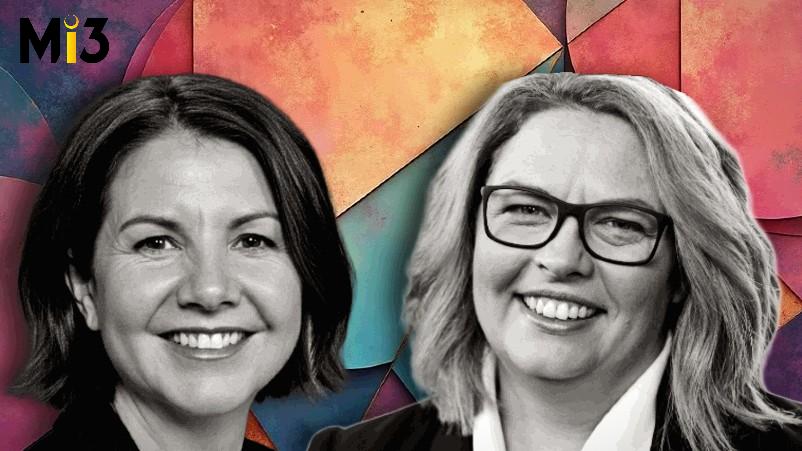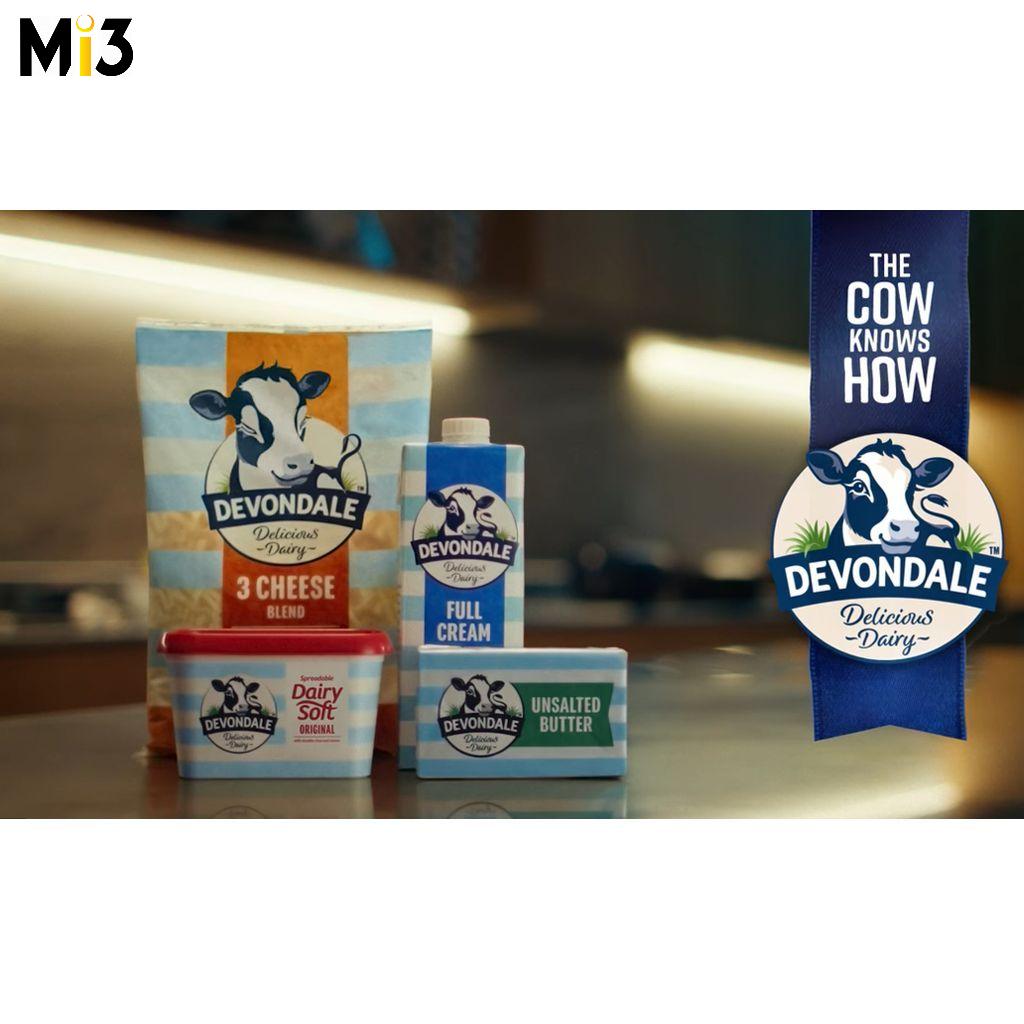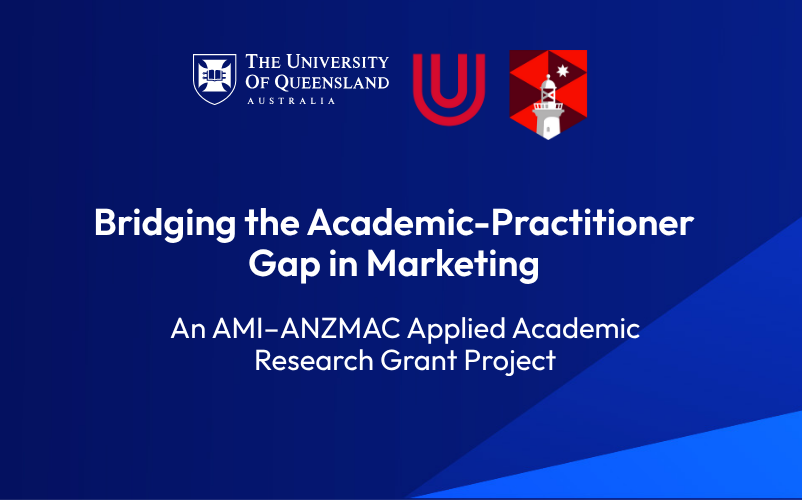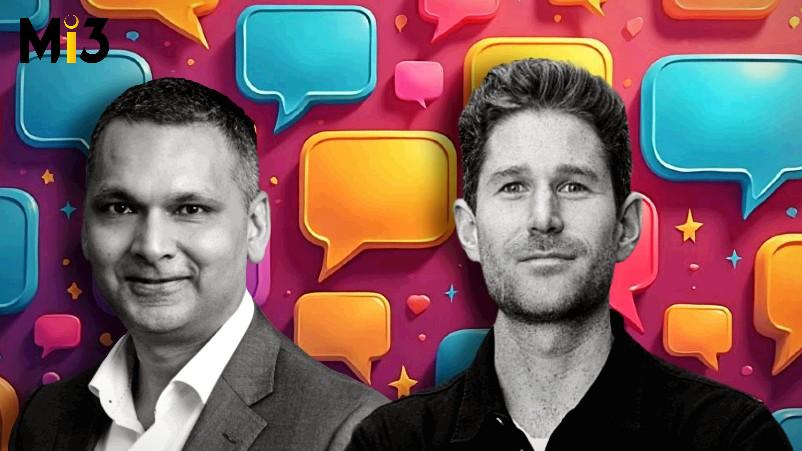Fresh from cracking $1bn in network sales and opening another 39 locations, Guzman y Gomez is bringing on Woolworths brand and marketing GM Claire West as its first dedicated Australian director of marketing to work alongside global CMO and this year’s CMO Awards #1, Lara Thom, and her 53-strong team.
Author: admin
Devondale debuts ‘The Cow Knows How’ campaign
Devondale has debuted a new campaign ‘The Cow Knows How’ aimed at winning over grocery buyers who prioritise quality, simplicity and reliability in cooking.
Endeavour Group hires ex-Qantas exec as first customer chief, Supercheap Auto MD to lead Dan Murphy’s in executive restructure
Endeavour Group has recruited former Qantas Chief Customer and Digital Officer Catriona Larritt as its new Chief Customer Officer and Supercheap Auto MD Benjamin Ward as the new MD of Dan Murphy’s.
Australia’s buying cycles blow out versus global markets, but good AI experience cuts a third off; B2B influencer investment on the rise amid swings in buyer preferences
Australian B2B brands have reported a double digit blow out in sales cycles even as global firms are cutting the time to close a deal. But those tapping AI in the process are slashing those cycle times by almost a third. Meanwhile, buyer influences are shifting – as is the rise of B2B influencers, per Dentsu’s Superpowers Index.
David Jones revives iconic jingle with artist Budjerah
David Jones has unveiled a re-recorded version of its iconic jingle, marking the first update in 25 years. The new rendition features ARIA Award-winning artist Budjerah, a 23-year-old Coodjinburra artist from the Bundjalung nation.
Bridging the Academic-Practitioner Gap in Marketing
“We’re really lucky that we’re competing against a lot of ways of getting this [customer] information that are both incredibly expensive and incredibly inaccurate,” says co-founder and CEO of Aussie customer intelligence startup, Heatseeker, Kate O’Keeffe. Buoyed by US$1.5 million in pre-seed funding, and a swathe of ASX-listed and Fortune 500 clients including ServiceNow, Medibank and Tyro, and with former Uber and eBay CMO Steve Brennen as chief evangelist in tow, the three-year-old tech platform aims to disrupt the US$110bn market and customer research space by tapping large-scale behavioural experimentation with advanced AI and synthetic person avatars. The initial game plan was to give marketers a faster, more accurate way of tuning into what their customers really think to help validate campaign launches, value propositions and offers. Now it wants to redefine how companies understand the voice of customers to derisk business decision making with tech that delivers outcomes within two weeks. Can social-based experimentation and data collection with synthetic avatars work well enough to do away with the longstanding survey, focus group or consumer panel?
How CMOs Can Win the CEO’s Ear?
“We’re really lucky that we’re competing against a lot of ways of getting this [customer] information that are both incredibly expensive and incredibly inaccurate,” says co-founder and CEO of Aussie customer intelligence startup, Heatseeker, Kate O’Keeffe. Buoyed by US$1.5 million in pre-seed funding, and a swathe of ASX-listed and Fortune 500 clients including ServiceNow, Medibank and Tyro, and with former Uber and eBay CMO Steve Brennen as chief evangelist in tow, the three-year-old tech platform aims to disrupt the US$110bn market and customer research space by tapping large-scale behavioural experimentation with advanced AI and synthetic person avatars. The initial game plan was to give marketers a faster, more accurate way of tuning into what their customers really think to help validate campaign launches, value propositions and offers. Now it wants to redefine how companies understand the voice of customers to derisk business decision making with tech that delivers outcomes within two weeks. Can social-based experimentation and data collection with synthetic avatars work well enough to do away with the longstanding survey, focus group or consumer panel?
Looking in The Rear-View Mirror
“We’re really lucky that we’re competing against a lot of ways of getting this [customer] information that are both incredibly expensive and incredibly inaccurate,” says co-founder and CEO of Aussie customer intelligence startup, Heatseeker, Kate O’Keeffe. Buoyed by US$1.5 million in pre-seed funding, and a swathe of ASX-listed and Fortune 500 clients including ServiceNow, Medibank and Tyro, and with former Uber and eBay CMO Steve Brennen as chief evangelist in tow, the three-year-old tech platform aims to disrupt the US$110bn market and customer research space by tapping large-scale behavioural experimentation with advanced AI and synthetic person avatars. The initial game plan was to give marketers a faster, more accurate way of tuning into what their customers really think to help validate campaign launches, value propositions and offers. Now it wants to redefine how companies understand the voice of customers to derisk business decision making with tech that delivers outcomes within two weeks. Can social-based experimentation and data collection with synthetic avatars work well enough to do away with the longstanding survey, focus group or consumer panel?
‘Total reputation’: Patties Foods and TBWA shift search strategies for AI as retailers start vetting suppliers via LLMs – SEO, content and PR lines blur
Retailers are “vetting suppliers through ChatGPT” and using LLMs to form business plans just as consumers are likewise shortcutting legacy search. That was the “eye-opening” realisation Patties Foods faced up to when TBWA and Eleven presented the evidence to its marketing team. Hence the prompt pilot of TBWA’s new system for brands to navigate AI search – and marketing and growth chief, Anand Surujpal kicking off an immediate trial program to tackle visibility in the LLMs. He calls it “total reputation” and says brand comms is next off the rank.
Big W’s Christmas campaign celebrates mums as festive heroes
BIG W has unveiled its latest Christmas campaign, focusing on the often-overlooked efforts of mums during the festive season. Created by the agency 72andSunny, the campaign aims to highlight the significant role mothers play in making Christmas a memorable occasion.










